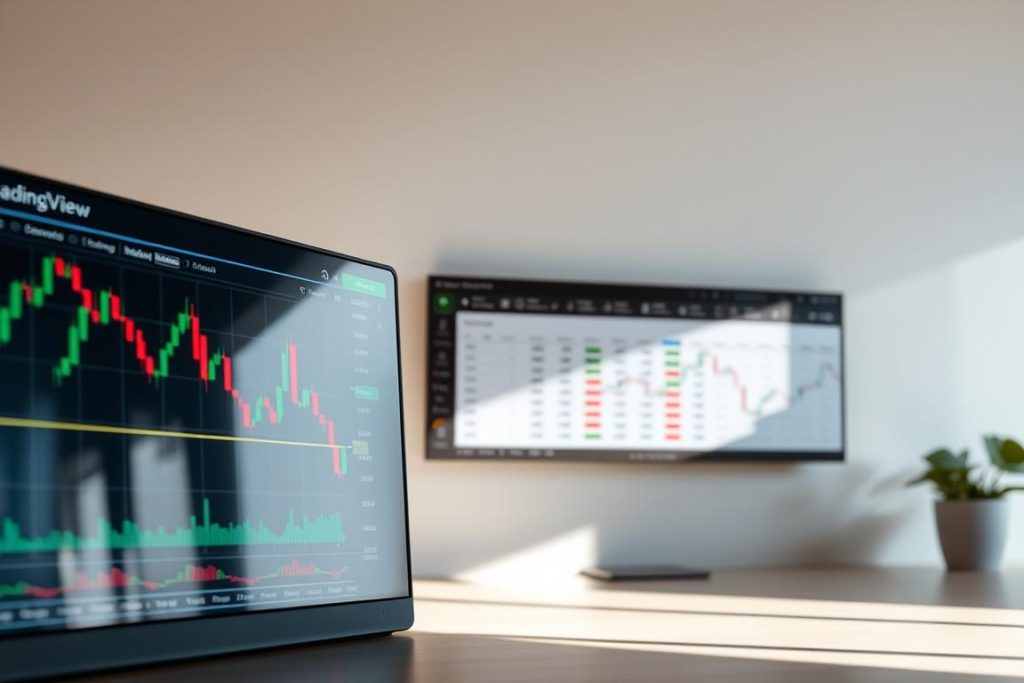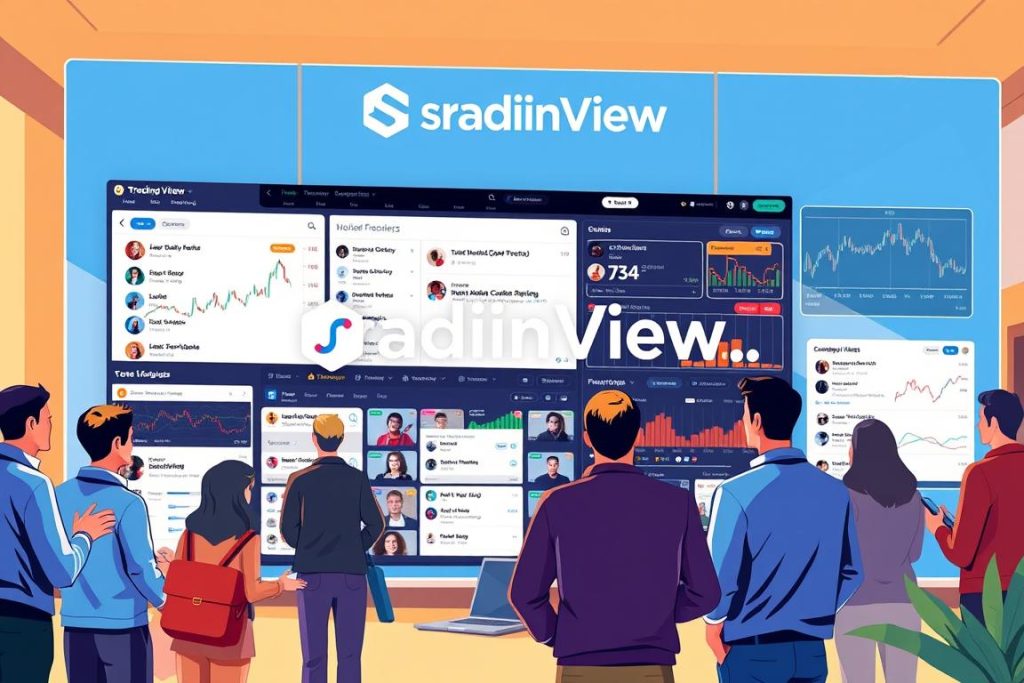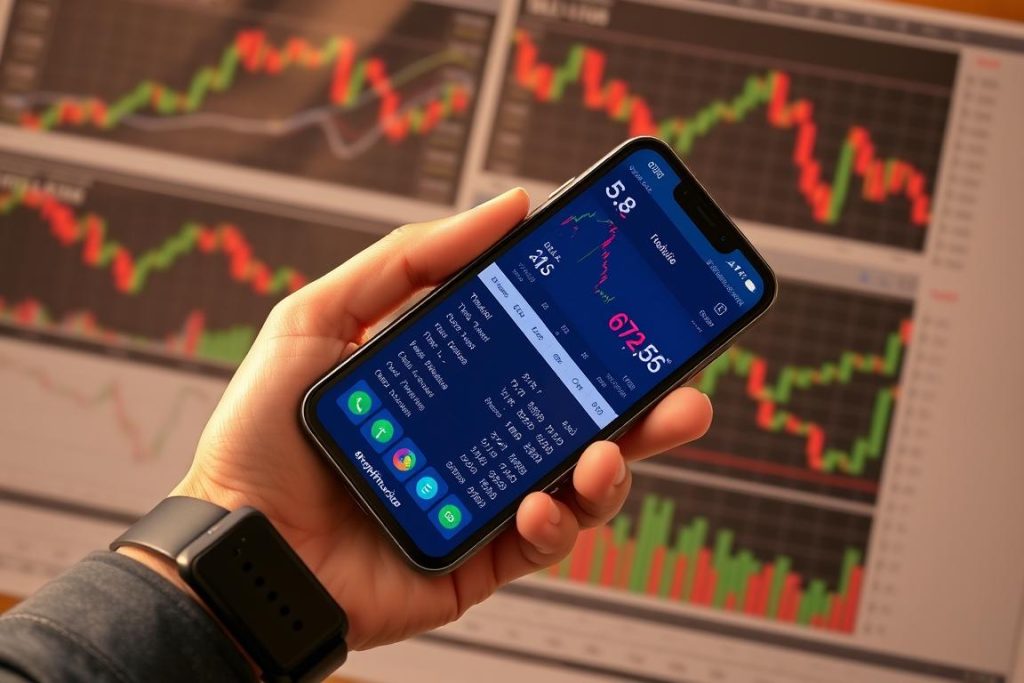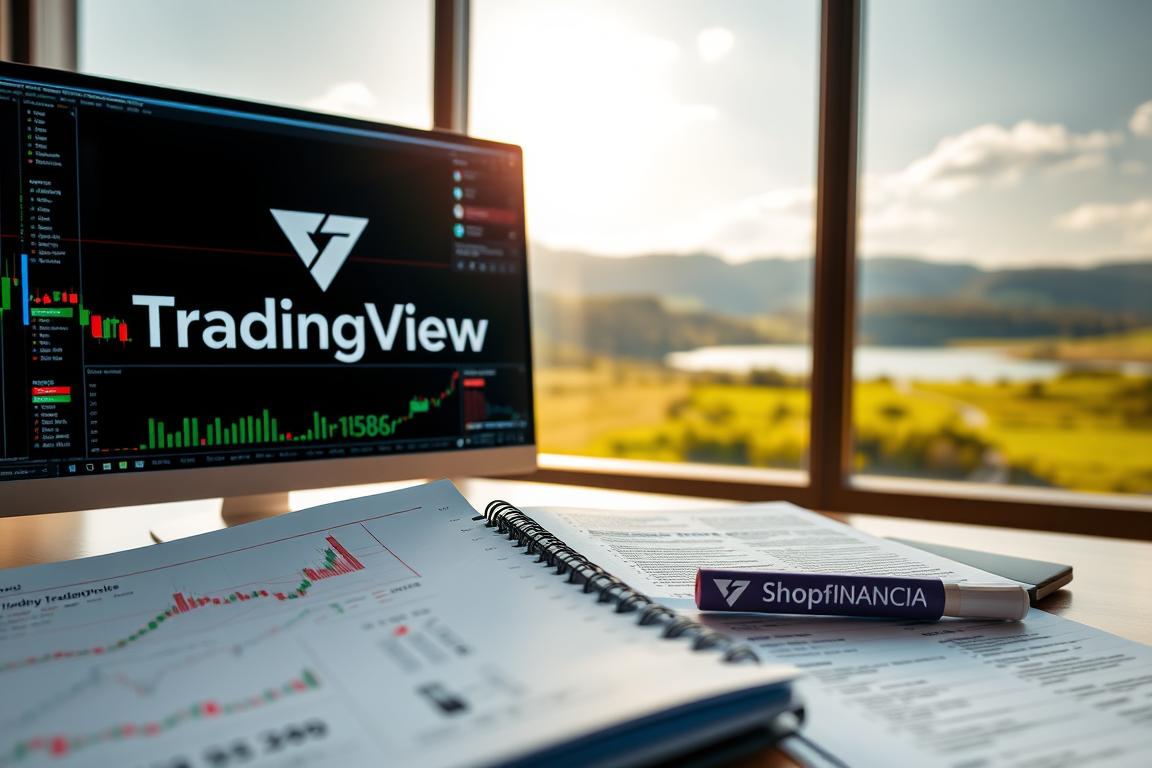Navigating the world of trading can be daunting, but with the right tools, traders and investors can make informed decisions. TradingView offers a robust platform that combines advanced charting tools, technical indicators, and a social community, making it an ideal resource for both beginners and experienced traders.
Having access to real-time market data and a community of traders can significantly enhance one’s trading experience. Just as having comprehensive health coverage, such as Wellpoint Insurance, provides financial stability, a comprehensive guide to using TradingView can help traders navigate the markets with confidence.
This comprehensive guide will walk you through the essential features of TradingView, empowering you to make the most of this powerful platform.
What is TradingView and Why Use It?
TradingView is a powerful platform that offers real-time market data and a wide range of technical analysis features. Just as having affordable health insurance is crucial for financial security, TradingView provides traders with the tools necessary for making informed decisions, akin to having comprehensive healthcare coverage for their investments.
Overview of TradingView Platform
TradingView is a web-based charting tool that gives users access to real-time market data. It’s designed to be intuitive, allowing traders to analyze markets with ease. The platform is akin to having a professional trading desk at your fingertips, providing the necessary insights for strategic trading.
Benefits for Traders and Investors
The benefits of using TradingView are multifaceted:
- Real-time data access
- A wide range of technical analysis tools
- Customizable workspaces
- Community features for sharing insights
Traders can navigate the markets more effectively, much like comparingonline insurance quotesto find the best fit for their needs.
Getting Started with TradingView
Navigating the world of trading and investing just got easier with TradingView’s intuitive platform. When comparing different trading platforms, it’s essential to compare insurance options to find the one that best suits your needs, much like selecting the right medical insurance plans for comprehensive coverage.
Creating Your Account
The sign-up process is straightforward; you can register using your Google account, Facebook, or email. When you find a TradingView Affiliate Link, you can even get a $15 Bonus. This diverse range of sign-up options is similar to having a broad insurance provider network, offering you flexibility and convenience.
Navigating the User Interface
Once you’ve created your account, navigating the user interface is the next step. TradingView’s interface is designed to be user-friendly, allowing you to easily understand complex trading strategies, much like understanding the details of various medical insurance plans.
Customizing Your Workspace
Customization is key to making the most out of TradingView. You can tailor your workspace to fit your trading style, whether you’re a day trader or a long-term investor. This flexibility is akin to choosing the right insurance options that fit your personal or business needs.
Understanding TradingView Charts
To make informed trading decisions, it’s essential to understand the various chart types available on TradingView. TradingView offers a range of charting options that cater to different trading strategies and preferences.
Chart Types Explained
TradingView provides several chart types, each with its own advantages. The most commonly used chart types are candlestick, line, and bar charts. Candlestick charts show the open, high, low, and close for a given period, making them a favorite among traders for their ability to convey a lot of information in a single glance.
- Candlestick charts: Provide detailed information about price movements.
- Line charts: Useful for identifying overall trends.
- Bar charts: Similar to candlestick charts but without the body color coding.
Timeframe Selection
Selecting the right timeframe is crucial for effective trading. TradingView allows you to easily switch between different timeframes, from minutes to months. The choice of timeframe depends on your trading strategy and goals.
| Timeframe | Use Case |
|---|---|
| 1-minute | Short-term trading, scalping |
| 1-hour | Intraday trading |
| 1-day | Long-term trend analysis |
Adding and Managing Multiple Charts
TradingView allows you to add and manage multiple charts, making it easier to compare different symbols or timeframes. You can add multiple charts to a single layout and customize them as needed.
Having comprehensive health coverage for your trading activities is just as important as understanding the charts. Ensure you have a solid risk management strategy in place.
Essential TradingView Tools for Technical Analysis
For traders seeking to deepen their analysis, TradingView’s technical analysis tools are indispensable. These tools enable traders to dissect market trends, predict potential movements, and make informed trading decisions.
Drawing Tools and How to Use Them
Drawing tools are fundamental to technical analysis on TradingView. Trend lines are one of the most basic, yet effective, tools in a trader’s arsenal. To use them, simply pick the “Trend Line” icon in your toolbar and plot the points on your chart. Other drawing tools include:
- Fibonacci retracement levels
- Horizontal and vertical lines
- Shapes and annotations
These tools help traders visualize market trends and patterns, making it easier to identify potential trading opportunities.
Using Indicators and Overlays
Indicators and overlays are crucial for analyzing market trends and predicting future movements. TradingView offers a wide range of indicators, including:
- Moving Averages
- Relative Strength Index (RSI)
- Bollinger Bands
These indicators can be applied directly to your charts, providing valuable insights into market dynamics.
Volume Profile and Market Structure
Understanding volume profile and market structure is vital for traders. TradingView’s volume profile tool helps traders analyze trading activity at different price levels, while market structure analysis aids in identifying trends and potential reversals.
| Tool | Description | Use Case |
|---|---|---|
| Trend Lines | Plot trend lines to identify market direction | Identifying support and resistance levels |
| Indicators (e.g., RSI, MA) | Apply technical indicators to charts | Analyzing market trends and momentum |
| Volume Profile | Analyze trading volume at different price levels | Understanding market sentiment and potential price movements |
By leveraging these essential TradingView tools, traders can enhance their technical analysis capabilities, making more informed decisions in the process.
Creating and Managing Watchlists
To maximize trading efficiency, utilizing TradingView’s watchlist feature is essential for keeping track of various markets and symbols. Watchlists allow traders to monitor multiple assets simultaneously, making it easier to identify trading opportunities.
Setting Up Custom Watchlists
Setting up custom watchlists on TradingView is straightforward. Traders can create market-specific watchlists, such as for Crypto, Forex, or Stocks, allowing for a more organized approach to tracking different asset classes. To set up a custom watchlist, simply navigate to the “Watchlist” tab, click on the “+” icon, and start adding your preferred symbols.
Key benefits of custom watchlists include:
- Easy tracking of multiple assets
- Customization to fit individual trading strategies
- Real-time updates for timely decision-making
Organizing Symbols and Markets
Organizing symbols and markets within TradingView is crucial for efficient trading. Traders can categorize their watchlists based on specific criteria, such as asset type or market conditions. This organization helps in quickly identifying trends and patterns, thereby facilitating better trading decisions.
For instance, creating separate watchlists for different markets (e.g., Crypto, Forex) and setting up price level alerts can enhance trading efficiency. This way, traders can stay informed about significant price movements without having to constantly monitor the markets.
TradingView Screener: Finding Trading Opportunities
TradingView Screener is a powerful tool that helps traders find opportunities based on specific criteria. By leveraging this feature, traders can streamline their trading strategy and make data-driven decisions.

Basic Screening Parameters
To start using the TradingView Screener, traders can apply basic screening parameters such as price, volume, and market capitalization. These filters enable users to narrow down the vast market data to stocks or assets that fit their trading criteria.
Creating Custom Screeners
Beyond the basic parameters, TradingView allows users to create custom screeners tailored to their specific trading strategies. This includes using various technical indicators and financial metrics to pinpoint potential trading opportunities.
Saving and Sharing Your Screens
Once a screener is set up, users can save it for future reference or share it with the TradingView community. This feature not only helps in tracking potential trades but also facilitates the exchange of ideas among traders.
By effectively utilizing the TradingView Screener, traders can enhance their trading strategy, making it more efficient and informed.
Using Pine Script for Custom Indicators
TradingView’s Pine Script is a versatile language used for developing custom indicators tailored to specific trading needs. This scripting language allows traders to create, backtest, and refine their trading strategies using a wide range of technical indicators and other data.
Introduction to Pine Script Language
Pine Script is designed to be intuitive for traders, allowing them to write scripts that define custom indicators. It supports various functions for data manipulation, including moving averages, relative strength index (RSI), and Bollinger Bands. With Pine Script, traders can analyze markets in ways that standard indicators cannot.
Creating Your First Custom Indicator
To create a custom indicator, start by opening the Pine Editor on TradingView. Begin with a simple script that plots a moving average. Use the following code as a starting point:
- Define the length of the moving average
- Calculate the moving average using the
sma()function - Plot the moving average on the chart
This basic script can be expanded with more complex logic, such as adding conditions for buy or sell signals.
Finding and Using Community Scripts
TradingView has a vast library of community scripts that users can access and modify. To find these scripts, navigate to the “Pine Scripts” section on TradingView’s community page. Here, you can search for scripts by keyword, popularity, or rating. Many community scripts are open-source, allowing you to customize them to fit your trading strategy.
By leveraging Pine Script and community scripts, traders can enhance their trading strategies and gain a competitive edge in the markets.
TradingView Social Features and Idea Sharing
One of the most valuable aspects of TradingView is its social features, which facilitate collaboration and knowledge sharing among traders. The platform allows users to tap into a vast network of insights and analysis, enhancing their trading decisions.

Following Top Traders and Analysts
TradingView enables users to follow top traders and analysts, providing access to their ideas, analyses, and market insights. This feature is particularly beneficial for novice traders looking to learn from experienced professionals. By following top traders, users can:
- Stay updated on market trends and analysis
- Gain insights into new trading strategies
- Engage with the community through comments and discussions
Publishing Your Own Trading Ideas
In addition to following others, TradingView allows users to publish their own trading ideas and share them with the community. This feature not only helps in showcasing one’s expertise but also fosters a collaborative environment where users can receive feedback and improve their trading strategies.
By leveraging these social features, traders can enhance their trading experience, stay informed, and contribute to the community. Whether you’re a seasoned trader or just starting out, TradingView’s social features are an invaluable resource.
Trading Through Connected Brokers
With TradingView, users can now connect with multiple brokers to execute trades seamlessly. This integration enhances the trading experience by allowing users to manage their trades directly within the platform.
Available Broker Integrations
TradingView supports a wide range of broker integrations, making it a versatile tool for traders. Some of the notable brokers that are integrated with TradingView include Fidelity, Robinhood, and Interactive Brokers. The list of supported brokers is continually expanding, so it’s beneficial to check the TradingView website for the most current information.
| Broker | Commission Fees | Account Minimum |
|---|---|---|
| Fidelity | $0 per trade | $0 |
| Robinhood | $0 per trade | $0 |
| Interactive Brokers | Starting at $0.005 per share | $0 |
Setting Up Trading Capabilities
To start trading through a connected broker on TradingView, users need to follow a few simple steps. First, navigate to the “Brokerage” section in your TradingView account, then select your broker from the list of available integrations. Follow the prompts to link your brokerage account securely. Once connected, you can configure your trading settings to suit your strategy.
Executing and Managing Trades
With your broker account linked, you can execute trades directly from TradingView’s interface. The platform allows you to monitor your positions, adjust your strategies, and execute trades with ease. The ability to manage trades within the same platform where you conduct your analysis streamlines your workflow, making you more efficient as a trader.
TradingView Mobile App: Trading On The Go
The TradingView mobile app empowers traders to stay connected to the markets and manage their trades on the go. With its comprehensive set of features, traders can monitor their investments and react to market changes in real-time.

Mobile App Features and Limitations
The TradingView mobile app offers a range of tools and features that are essential for traders, including real-time data, chart analysis, and the ability to set alerts for market movements. Key features include:
- Real-time quotes and charts
- Technical analysis tools
- Customizable watchlists
- Alerts for significant market events
While the mobile app is highly functional, there are some limitations compared to the desktop version, such as the complexity of some analysis tools and the Pine Script editor not being available on mobile.
Synchronizing Desktop and Mobile Experience
One of the significant advantages of the TradingView mobile app is its ability to synchronize with the desktop experience. This means that traders can start analyzing or trading on their desktop and then seamlessly continue on their mobile device. Synchronization includes:
- Watchlists
- Charts and analysis
- Alerts
This synchronization ensures that traders have access to their critical information across all their devices, providing a cohesive and flexible trading experience.
Conclusion
As we conclude this comprehensive TradingView guide, it’s clear that the platform offers a robust set of tools for traders and investors. By understanding how to navigate and utilize TradingView’s features, you can enhance your technical analysis capabilities and make more informed trading decisions.
Effective risk management is just as crucial as technical analysis for achieving long-term trading success. By combining the insights gained from TradingView with sound risk management strategies, you can better navigate the markets and work towards your financial goals.
This TradingView guide has provided a thorough overview of the platform’s capabilities, from chart analysis and indicator usage to social features and mobile trading. By mastering these tools, you can develop a more effective trading strategy and stay ahead in the markets.
